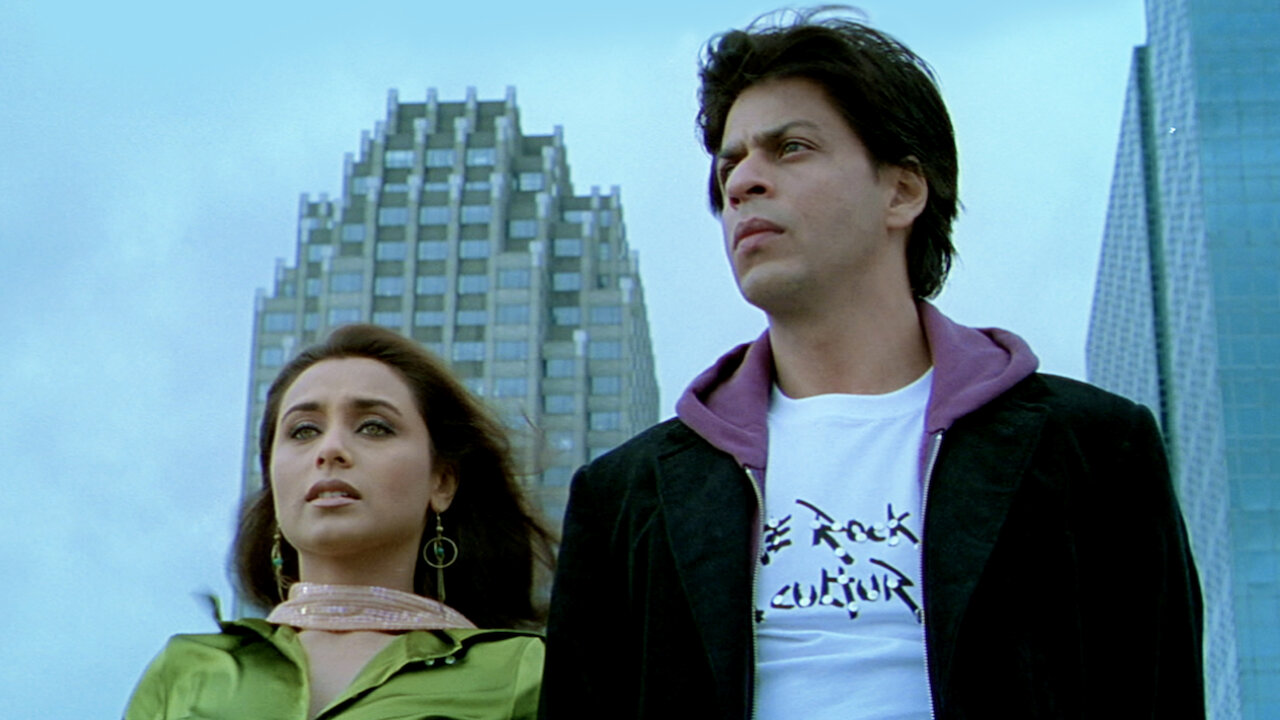Since it’s release a couple days ago, my feed has been flooded with praise for the film Gehraiyaan for pioneering intimacy and a nuanced look on infidelity like never before seen in Bollywood. This acclaim however, denies credit to the Hindi Cinema industry and to Gehraiyaan. Gehraiyaan is not a Bollywood film.
While defining characteristics differ, what makes a film Bollywood are the songs, dances, and pan-India accessibility of it. So yes, while it was the first Hindi language film to hire intimacy experts, what good does that do if only audiences who can afford streaming services can watch it? Chances are, audiences watching Gehraiyaan already consume media that explores intimacy and sex, and will have less of a barrier to destigmatizing it compared to their counterparts. Furthermore, other streaming service originals have explored infidelity and intimacy before with just as much nuance and meaningful storytelling. Lust Stories, Ajeeb Dastans, and Zindagi in Short – to name a few.
What Gehraiyaan does offer us and what is worth fixating on are the feminist narratives it offers. It’s joyfully indulgent in characterising its women as compared to its stereotypical male characters and emphasizes a woman’s agency of choice.
What ‘Gehraiyaan’ does offer us and what is worth fixating on are the feminist narratives it offers. It’s joyfully indulgent in characterising its women as compared to its stereotypical male characters and emphasizes a woman’s agency of choice.
Also read: Film Review ‘The Lost Daughter’ — A Succinct Commentary On Imperfect Motherhood
Is Gehraiyaan A Feminist Movie?
The male gaze in Bollywood births female protagonists whose characterisation is built on a defined quality or in aid to a male protagonist’s character development. The women of Gehraiyaan are different– they’re multi-faceted, flawed, and feel ever-changing.
Alisha (Deepika Padukone), undergoes complete character development, but rather than in the shape of an arc, hers is a circle. She starts the movie as a yoga instructor failing to gather funding for her app, committed to an unsatisfying relationship, and estranged from her father whom she blamed for her mother’s suicide. Then enters Zain, her cousin’s fiancé, who she engages in an affair with. Now, she’s in agency of her choices again, the owner of a posh studio and successful app, and kindling emotional depth with Zain, However, she eventually returns to old patterns in a build-up to the classic domestic noir murder moment by self harming, isolating from her father, and disconnecting from Zain.

But where most media depicting female infidelity would have the heroine succumb to insanity and take her life (cough cough Anna Karenina), Alisha healthily heals. She lives a life bigger than her mistakes and celebrates her agency of choice. She is on a path of reflection and constant change, with no right or wrong, or the pressure of definitiveness – it’s circular. It’s refreshing to see a character who exists in multitudes like her, especially in a world that demands women to fit into roles and be decipherable.
Yet it’s Tia (Ananya Panday) who really steals the show for me. Male gaze assumes that her character could have been two-dimensional, completely in service to furthering the plot and to Zain. Yet, while quick to be written off as your classic privileged, ditzy, only-child, Tia proves to be intelligent, strong, and generous. Aside from being a savvy business woman, countless times, Tia has been the backbone for her family and her fiancé, offering them her totality: from her family’s sacred beach house to sharing her mother’s pain with her adulterous, recently deceased father. While mourning Zain’s death, she even tells Alisha the truth about her identity, a move of immense emotional maturity and patience. Audiences would have understood if Tia moved with hate for Alisha as her half-sister who stole her inheritance, but she readily accepted her and her truth. Tia feels like an embodiment of classic storytelling modes of divine intervention in always resourcing for her loved ones and holding the mirror to Alisha’s face to encourage growth and healing.

The film holds space for all these women to heal, and we’re painted an intimate portrait of their journey. There’s quite literally, nothing more pro-feminist than women taking time to rest, reflect, and heal. Capitalist worlds and patriarchal frameworks demand constant labor and self-sacrifice from women. How rare is it for women to find spaces to heal in a world that demands our consistent attention and selflessness, which are notions only inflamed by conventional gender roles?
‘Gehraiyaan‘ holds space for all these women to heal, and we’re painted an intimate portrait of their journey. There’s quite literally, nothing more pro-feminist than women taking time to rest, reflect, and heal. Capitalist worlds and patriarchal frameworks demand constant labor and self-sacrifice from women. How rare is it for women to find spaces to heal in a world that demands our consistent attention and selflessness, which are notions only inflamed by conventional gender roles?
Unpacking the Gendered Notions behind Infidelity
I want to make it unequivocally clear that I am not arguing on the morality of cheating. It is painful with grave repercussions, and quite literally surpasses the most basic tenant of feminism in the betrayal of the other woman. This movie however, provokes us to understand the gendered notion behind infidelity.
From history till today, Indian women are expected to remain faithful to their cheating husbands. We can place the burden of the blame on circumstances. In the past and often today, women have no choice but to stand by and normalise their cheating husbands because they are dependent on them and can’t escape societal gender roles. When men cheat, their wives are still made culpable for not being the best wife or for not understanding that “boys will be boys.” The woman is always made to have lost something: her innocence and sanity when she cheats or her claim as a good wife when she’s cheated on.
Following lead, popular media portrayals of women who have affairs outside their relationships unethically, often paint a demure damsel-in-distress who succumbs to lust or emotional chaos and turns to cheating. She doesn’t stand by her choice and attributes her unfaithfulness to idealism (in love or lust), weakness, or even mental instability. Rani Mukherjee’s character in Kabhi Alvida Na Kehna epitomises this phenomenon completely.

She’s a loyal and obedient wife who hesitates to communicate her true feelings with her husband and eventually succumbs to lust paired with hopes of better. Rani’s character carries an air of damnation and her guilt is palpable through the film with infidelity becoming a personality trait for her. The movie is simply about unfaithfulness and not the other emotional journey that accompany it, like acceptance, introspection, and intergenerational trauma. Gehraiyaan and Alisha’s infidelity is not framed like this, and that’s why it resonates with viewers.
Also read: ‘Pushpa’ Film Review: The Problematics In The Making Of A Hypermasculine Hero
Alisha’s unfaithfulness serves as a way for her to break free and there’s no judgement passed off of it on screen. She chooses it wholeheartedly and allows it to liberate her, even though she knows it’s a mistake. As Alisha’s father so beautifully puts it when describing Alisha’s mother, she was more than her one mistake. Women deserve to have their whole humanity recognised because we shouldn’t have to meet specific standards to be granted our personhood.
Pranjal Jain is the founder of Global Girlhood and culture shifter. She writes at the intersections of gender, culture, and society. You can find her on Instagram.





This is such a well-etched review. I really connected with the film a lot, as it explores the messy, human side of our lives, the vulnerabilities, the naivete, the self-destructiveness, the fear and all darker realms of our emotions.
“There’s quite literally, nothing more pro-feminist than women taking time to rest, reflect, and heal. ” Yes yes yes!
I loved Alisha’s character and DP has really grown as an actor. Her facial expression of quiet grief was perfectly done.
Loved the depths of characterization in the film. And watching Naseeruddin Shah after so long was the cherry on top. This guy. Such brilliance in a few seconds.
Superb film. It better be up for some awards.
So wife cheats for liberation? What load of nonsense is this. Similarly would you say husband cheats for liberation too? I dare you would never.